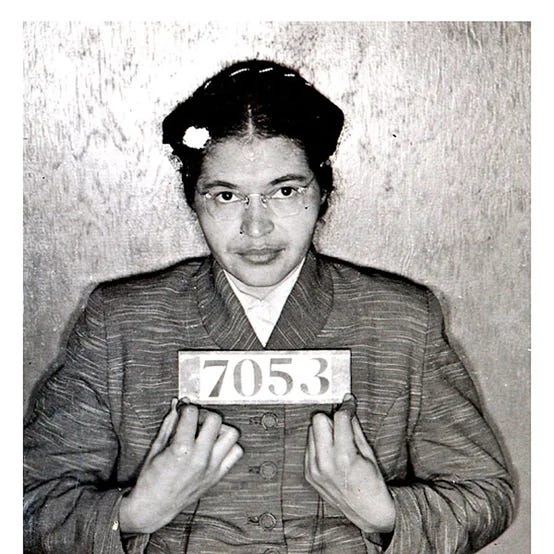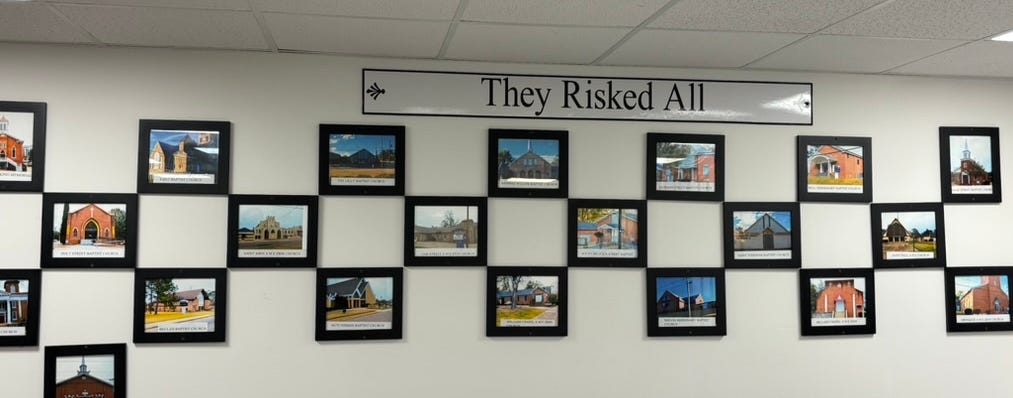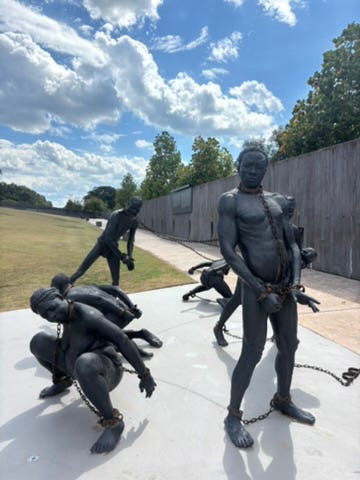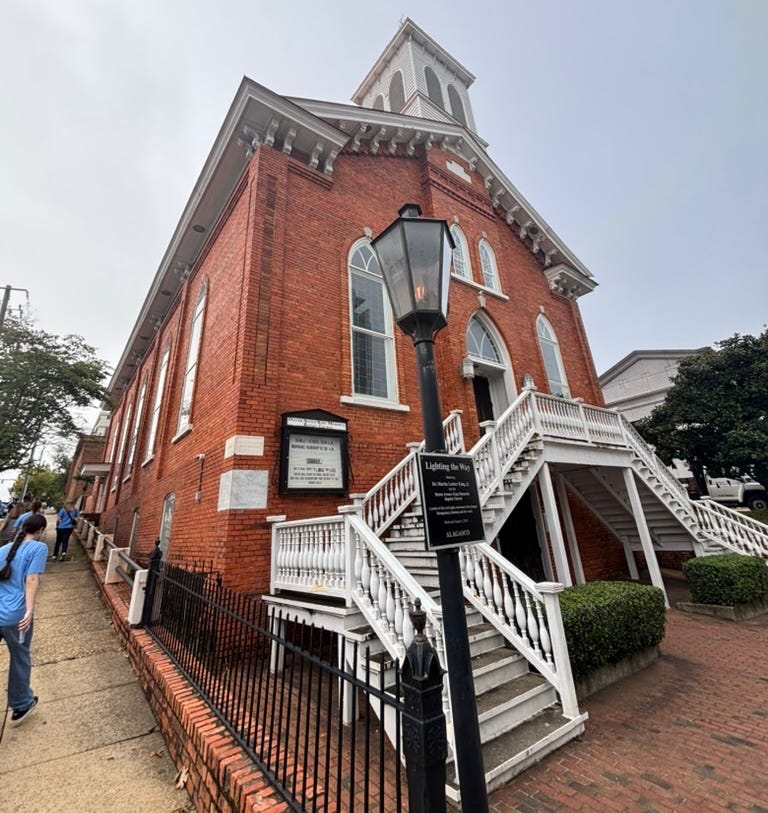Recently, I spent a few days in Montgomery, Alabama, with the Undivided fellowship. We gathered as pastors and leaders from around the country to learn, reflect, and wrestle with what it means to lead the church into racial healing and justice today.
I met incredible people. I learned much. And I was deeply moved.
Walking the streets of Montgomery is like stepping into a living parable. You can stand where Rosa Parks refused to give up her seat. You can sit in the pews at Holt Street Baptist, where a young Dr. King preached his first sermon during the bus boycott. You can almost hear the resolve in the voices of those who said, “Enough.”
The Montgomery Bus Boycott was not just a protest—it was the beginning of the modern Civil Rights Movement. On December 5, 1955, thousands of Black citizens crowded into Holt Street Baptist Church. They prayed, they strategized, and they committed to a long road of sacrifice. They would walk to work instead of ride. They would face harassment, intimidation, and exhaustion together. That gathering of churches collaborating in solidarity catalyzed a movement that changed the nation.
In the basement of Holt Street Baptist, a wall now lists the churches that came together to stand and serve during the boycott. Those Black churches collaborated to protest injustice, modeling what it looks like to live Kingdom over castle. In painful contrast, many white churches—ensconced in fear, or worse, perpetuating the oppression of segregation—did nothing. They were more concerned with protecting cultural castles than embodying God’s Kingdom.
The church’s collaboration—or its refusal to collaborate—literally shaped history.
Mission Is the Magnet
I believe networks of churches are best held together around a shared mission—multiplying disciples, leaders, and churches. Mission is the magnet. It keeps us focused and aligned.
But here’s the thing: mission is never only about planting churches. It’s about participating in God’s Kingdom. And the Kingdom is always about more than numbers. It’s about good news for the poor, freedom for the oppressed, and reconciliation between divided peoples.
Collaboration Catalyzes Kingdom In-Breaking
When leaders come together around mission, something more than strategy happens. Collaboration creates the conditions for Kingdom in-breaking.
We share resources, encourage one another, and spark fresh innovation. But collaboration also opens our eyes to the needs around us.
Justice and solidarity are not distractions. They are the fruits of Kingdom collaboration. When we decide not to walk alone, we also decide not to look away. When churches choose to collaborate, heaven’s justice and mercy have space to break into earth.
Collaboration can catalyze shalom—the wholeness of God’s Kingdom breaking into fractured neighborhoods. It can dismantle barriers that keep people apart. It can embody the gospel of hope, not just in words, but in visible acts of justice and reconciliation.
This is what Friends on Mission is about. Not isolated churches, not lone leaders, but friends standing shoulder to shoulder, multiplying churches and multiplying hope. Together, we practice the gospel as a hope-filled protest against despair.
Montgomery Is a Mirror
The boycott reminds us of both the church’s potential and its peril. Black churches in Montgomery stood shoulder to shoulder. They prayed, strategized, organized, and carried the weight of the movement. They chose Kingdom collaboration.
But many white churches—my people, my heritage—stayed out of the conflict. Some chose comfort. Some chose safety. Some chose politics. Their allegiance was not to the Kingdom of God, but to the powers and privileges of the moment.
That mirror still stares us down today. What will our churches, our networks, our leaders be remembered for?
Justice Is Mission-Shaped
Some worry that talking about justice distracts from evangelism or church planting.
But if we plant churches without justice, what are we multiplying?
The prophets remind us: “Let justice roll on like a river, righteousness like a never-failing stream” (Amos 5:24).
Jesus announced his ministry this way: “The Spirit of the Lord is on me, because he has anointed me to proclaim good news to the poor… freedom for the prisoners and recovery of sight for the blind, to set the oppressed free” (Luke 4:18).
Paul declared that in Christ, all divisions are dismantled: “There is neither Jew nor Gentile, slave nor free, male nor female, for you are all one in Christ Jesus” (Galatians 3:28).
Justice is not separate from mission. It’s what mission looks like when it takes root in real neighborhoods among real people, bringing shalom to all. This is the in-breaking of the Kingdom.
Collaboration can catalyze all of this.
A Kingdom That Outlasts Politics
The church in Montgomery faced a choice: allegiance to comfort, culture, or Kingdom. We face the same choice today.
Too many churches are paying reverence to politics instead of the Kingdom. And politics—left or right—always makes a lousy god. Parties rise and fall, leaders come and go, slogans fade like yesterday’s headlines. The Kingdom of God lasts forever.
The Kingdom doesn’t run on fear, scapegoating, or power grabs. Its values are upside-down compared to the world’s:
The first are last.
Enemies are loved.
The poor are blessed.
The meek inherit the earth.
You and I have a choice. We can live as citizens of this world, or as citizens of the Kingdom. But we can’t have it both ways. Castles built on politics crumble. The Kingdom endures.
Solidarity as a Network Practice
If networks can multiply churches together, they can also stand together in solidarity. What if collaboration wasn’t only about planting churches, but also about dismantling walls of division in our cities?
The same courage it takes to multiply churches is the courage it takes to confront injustice. The same Spirit that empowers us to plant is the Spirit that empowers us to heal.
A Call to Courageous Collaboration
The choice before us isn’t new. Churches in Montgomery faced it. We face it still.
Will we only collaborate to grow what’s safe and familiar? Or will we also collaborate to embody the Kingdom in its fullness—multiplying churches and justice, disciples and solidarity?
Networks are about multiplying churches. But in God’s economy, they also multiply hope, courage, and justice.
Closing Vision
I left Montgomery with a prayer echoing in my heart: that the church in our generation would not stay silent. That we would be remembered as those who came together—not only to plant churches, but to confront the injustices of our time.
Mission is the magnet. Collaboration is the method. Justice is the fruit.
The church in Montgomery showed us what’s possible when leaders stand together.
What will our witness be?
Cheering you on!
Patrick 🙏
P.S.: Thank you to my friends at Undivided and my fellow mission friends who joined me on the 2025 Fellowship pilgrimage! It was a transformative experience for me.
A Prayer for the Church
Lord of justice and mercy,
let Your Spirit fall fresh on us.
Where we have been silent, give us courage.
Where we have been complicit, bring repentance.
Where we have grown comfortable, stir us awake.
Let justice roll down like waters (Amos 5).
Let good news reach the poor and freedom come to the oppressed (Luke 4).
Let the walls that divide be torn down so we may be one in Christ (Galatians 3).
Make our collaboration more than strategy.
Make it a catalyst for Kingdom in-breaking.
Through Friends on Mission, let us multiply shalom, remove barriers, and embody gospel hope.
In Jesus’ name, Amen.








